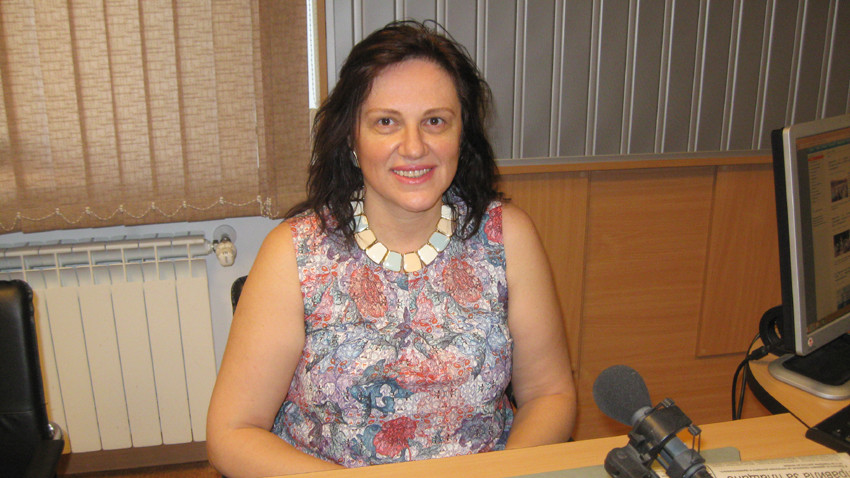More than 50% of psychiatric hospitals, clinics and centers in Bulgaria are in critical condition. This is what a report recently presented by the Minister of Healthcare Kiril Ananiev to the Council of Ministers shows. The miserable situation in psychiatric clinics in Bulgaria is not something new. This sector of Bulgarian healthcare is characterized by lack of reforms and is often criticized by international institutions and media.
In Bulgaria there are 12 state psychiatric hospitals, 12 mental health centers and 22 specialized wards whose capacity is almost filled. Work on the strategy for psychiatric care in this country in accordance with the European practices has started. For this purpose, a working group has been set up and it is expected to come up with a decision in month and a half. The government has been planning to solve the problem with the lack of staff by paying for specializations in psychiatry.
Besides outdated equipment, another major problem is the remoteness of some of the hospitals, which makes it difficult for patients to adapt to city life after treatment.
The largest psychiatric hospital for the district of Sofia – St. Ivan Rilski, better known as Kurilo, is located about 25 kilometers away from the capital city. More than 1300 patients are treated there annually.
"The location of all state psychiatric hospitals creates the atmosphere of a psycho thriller in them. All of them are located away from settlements and access to them is difficult and limited,” head of the hospital, Dr. Tsveteslava Galabova says. "They were created in times when the basic principle of treatment of mentally ill people has been linked to their long-lasting or even life-long isolation from society. But more than 30 years ago, standards for the treatment of such patients have changed and it is known that they should be treated close to towns and the place where they lived before. This allows for a more gradual transition from hospital treatment to treatment at home.”

The indifference of society towards these people is detrimental, too, Dr. Galabova says and adds;
“These illnesses are not contagious, but the indifference and the opinion that such a thing could not happen to us leads to a negative attitude towards the psychiatrically ill patients,” Dr. Tsveteslava Galabova says.
Is it possible for a general profile of mentally ill people to be drawn?
“Yes, it is. Everyone should know that mental illnesses do not depend on sex, age, social status, or success in life, so no one can be sure they could not get ill.”
Some days ago at its meeting the Council of Ministers decided to grant extra 1 million euros for the mental health centers and psychiatric wards to hospitals in the country. Another 5 million euros will be granted for repairs. This has caused some diverse reactions. Here is the opinion of director of one of the largest psychiatric clinics in this country:
“The decision is good, but as a person who has been working for 25 years in the system and a person with economic education, I think giving money without analyzing where exactly to invest, and without having a long-term program for 10-15 years is impractical. Renovating dilapidated hospitals in the middle of nowhere would not be beneficial. We currently have 4500 beds for psychiatric patients, which is 10% of the total number of hospital beds in the country. This is sufficient but the point is that they are extremely unevenly distributed. Pouring a lot of money into a system that has not been reformed is not the best solution.”
At the end of the conversation with Dr. Galabova, the psychiatrist wished to send a special message to people: “I would like to tell your listeners and readers to be more tolerant of people with mental disorders in their behavior, way of talking and thinking. There are no guarantees that a person could not get ill.”
English: Alexander Markov
Photos: archiveThe Bulgarian team is returning home with four medals from the Youth International Olympiad on Astronomy and Astrophysics (IOAA) , held in the Romanian city of Piatra Neamț, the Ministry of Education and Science announced. The competition brought..
The Association of Bulgarian Schools in America invites children from the Bulgarian community in North America to participate in a competition dedicated to November 1 - National Awakeners' Day, the organization announced on its..
Robert Joseph Miller, Bulgaria’s Honorary Consul in Nevada, was awarded the prestigious “Golden Laurel Branch” of the Ministry of Foreign Affairs for his exceptional merits in maintaining the diplomatic relations between the US and Bulgaria. The award..
The Bulgarian team is returning home with four medals from the Youth International Olympiad on Astronomy and Astrophysics (IOAA) , held in the Romanian..
The Association of Bulgarian Schools in America invites children from the Bulgarian community in North America to participate in a..
Bulgaria and China have agreed to further strengthen their cooperation in the field of science, technology and innovation at a high level, as well as in..

+359 2 9336 661
